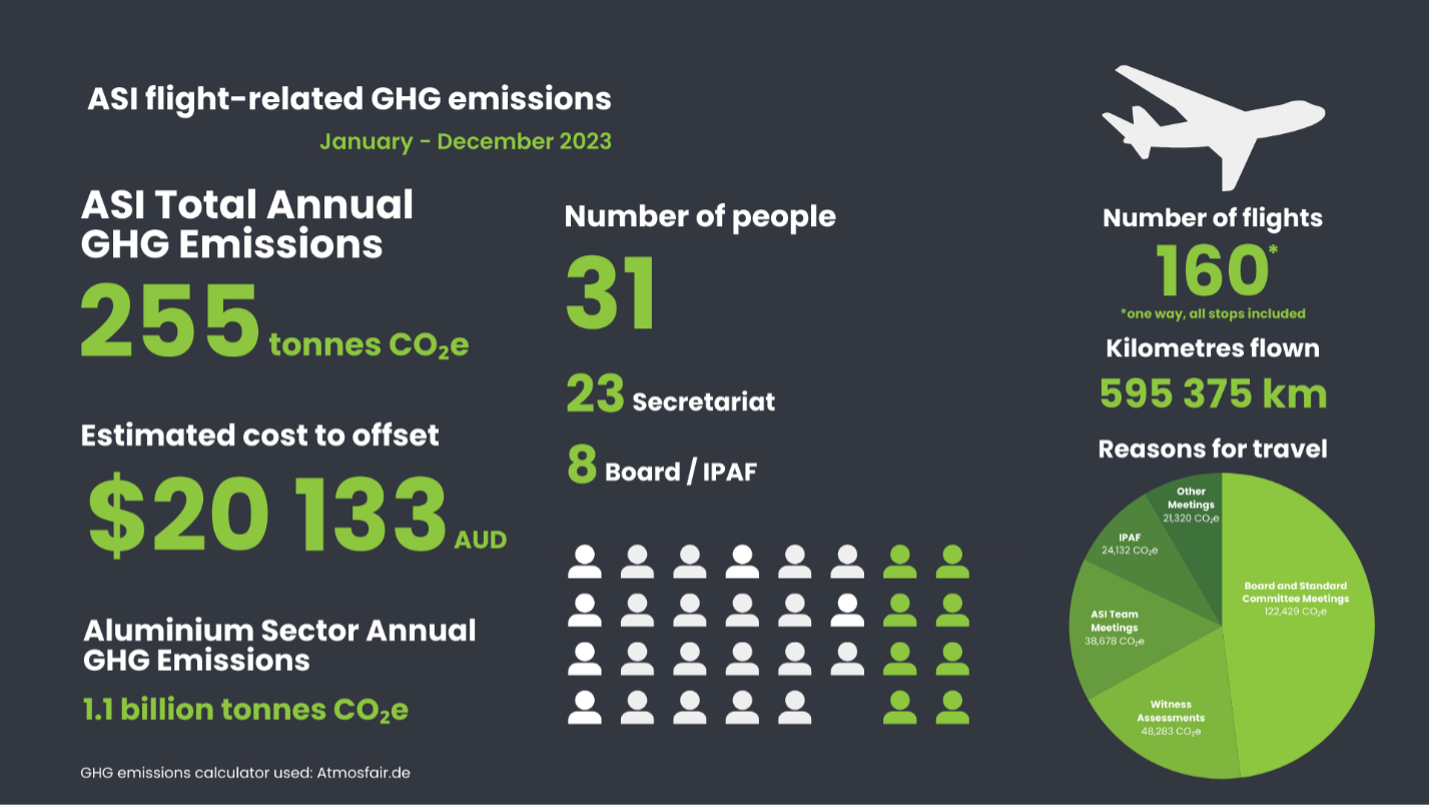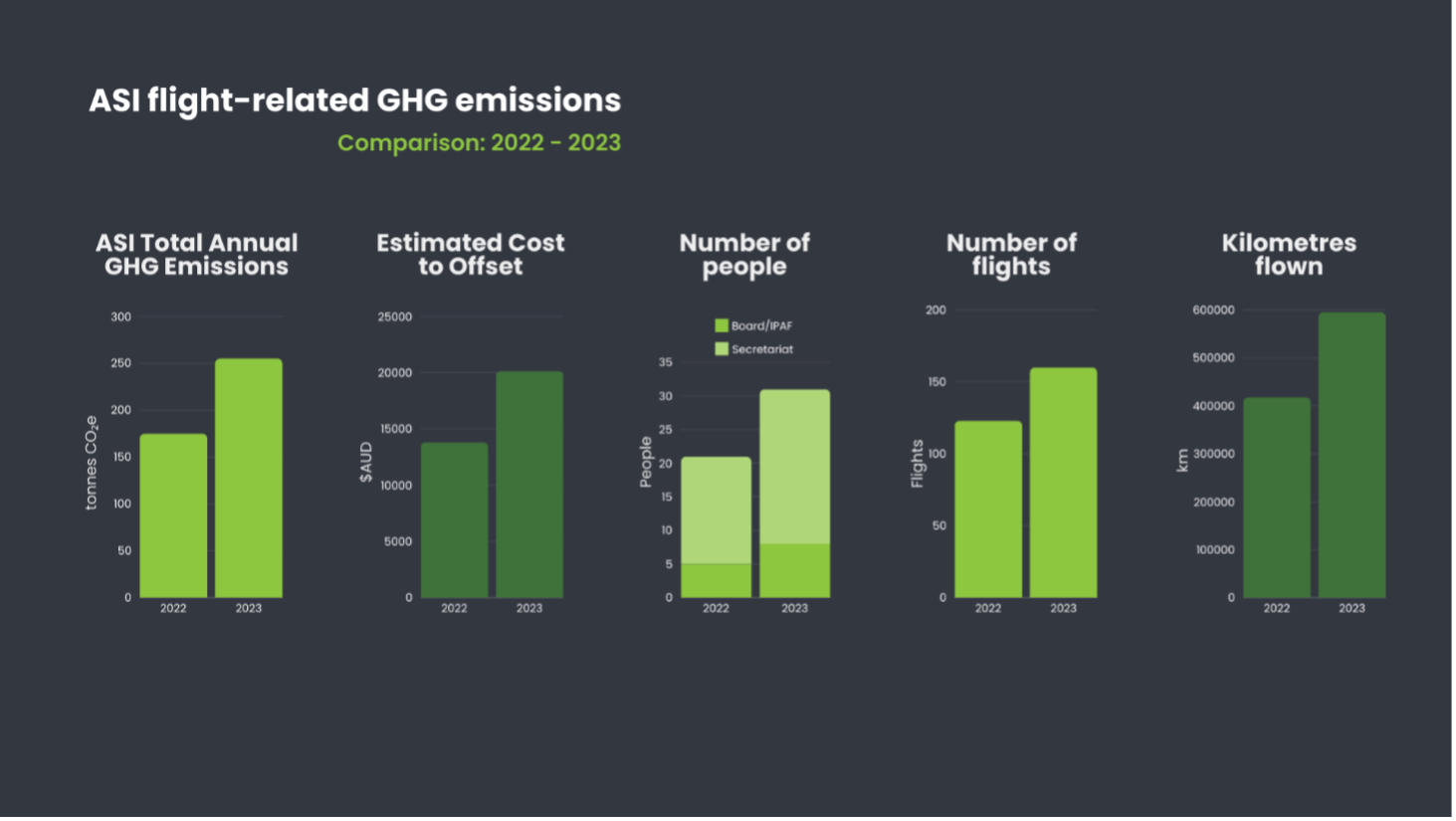ASI GHG emissions from flights: 2023 data and actions
ASI is committed to reducing its carbon footprint. Therefore, in 2022 we started to collect and monitor data on Greenhouse Gas Emissions (GHG) from ASI funded flights – the most material contributor to our climate impacts as an organisation.
28 March 2024
ASI is committed to reducing its carbon footprint. Therefore, in 2022 we started to collect and monitor data on Greenhouse Gas Emissions (GHG) from ASI funded flights – the most material contributor to our climate impacts as an organisation.
During this first two years of data collection, the number of staff and Board and IPAF Members which took flights has risen from 21 people in 2022 to 31 in 2023, and our total flight-related GHG emissions also rose from 175 tons CO2e to 255 tons CO2e. Major travel in both years related to the annual in-person Board meeting, Standards Committee meeting, northern/southern hemisphere team meetings, witness assessments of ASI audits, and in-country workshops with Indigenous Peoples Advisory Forum (IPAF) members.

Figure 1 shows the key data points for ASI flight-related GHG emissions in 2023.

Figure 2 presents 2023 flight-related GHG emissions data with comparison to 2022 data
We will continue to track and monitor our flight emissions on an annual basis, to support targets for reductions and mitigation. Our actions and principles include:
- Prioritising online delivery platforms and engagement tools wherever possible
- Careful consideration of the impact of any team travel against the potential to create positive impact with stakeholders via periodic in-person engagement
- Ensuring strategic alignment to ASI’s goals for any travel undertaken.
RELATED TOPICS:
SHARE THIS ARTICLE


